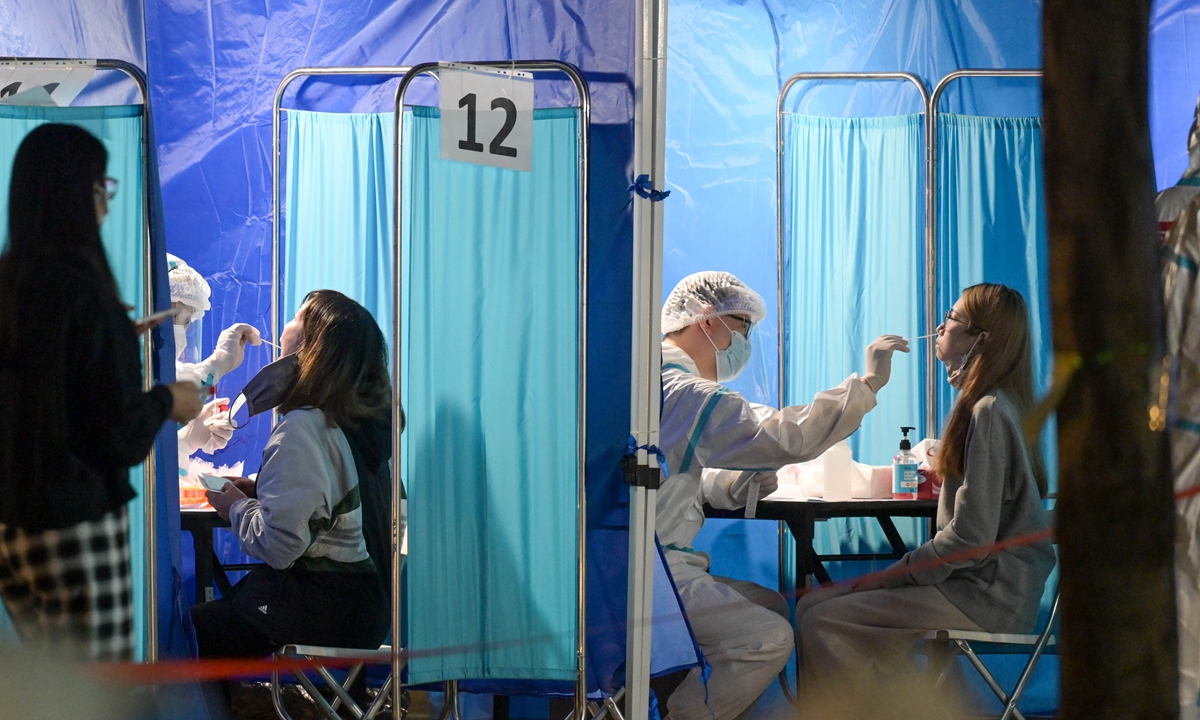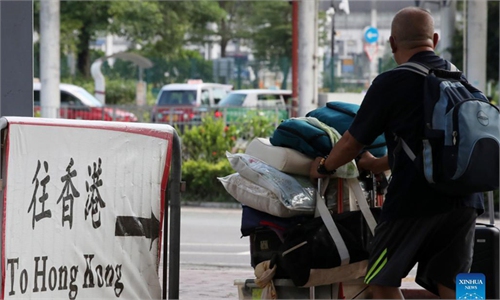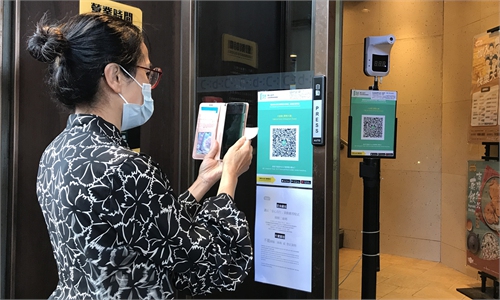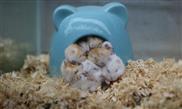Hopes for HK-mainland border reopening around Spring Festival dashed amid city's epidemic woes

Hong Kong residents at the Kwai Chung Estate take nucleic acid tests on January 22, 2022. Photo: cnsphoto
Hopes for the border reopening of the Hong Kong Special Administrative Region (HKSAR) with the Chinese mainland around the Spring Festival have been dashed, experts said on Sunday, after the city reported 140 COVID-19 cases on Sunday, including 104 cases related to the Kwai Chung Estate outbreak.This marked the highest number reported since the fifth wave broke out, and the first time for the daily number to exceed 100 over the past year.
Epidemic experts in Hong Kong attributed the exponential surge in COVID-19 infections to superspreaders, but they believed the SAR government, which has adopted very effective measures to contain the virus' spread within the city, is capable of combating the epidemic resurgence fueled by both the Delta and Omicron variants.
Carrie Lam, the Executive Chief of the HKSAR government, visited the Yat Kwai House at Kwai Chung Estate on Sunday afternoon, a site that was under a five-day lockdown after some 100 COVID-19 infections were detected in primary testing.
From Monday, teaching staff or government workers living in the neighborhood should not return to their jobs, schools or kindergartens, local media reported. People living in the areas were told to undergo mandatory testing.
The HKSAR government said on Sunday that the recent outbreaks - featuring one related to quarantine hotels and community transmission, with Omicron being detected - and the Delta outbreak in pet shops is very concerning.
The primary test results from the Centre for Health Protection (CHP) of the Department of Health on Saturday showed more than 100 positive cases were detected, some were individual cases, and 96 were residents and visitors of Yat Kwai House.
Several people were found to be linked to hamsters from pet shops before they were confirmed.
A spokesperson from the Agriculture, Fisheries and Conservation Department (AFCD) advised the public to surrender to the department as soon as possible their hamsters purchased in local pet shops on or after December 22, 2021 for humane dispatch. As of Saturday, 77 hamsters had been surrendered to the AFCD.
Judging from the open information, this round of the epidemic is controllable and should end in weeks or a month, Jin Dongyan, a biomedical professor at the University of Hong Kong, told the Global Times on Sunday.
He believed that the outbreak in the community was detected at an early stage and the government imposed lockdowns and mandatory tests for related people promptly to reduce the risk of the virus spreading to larger areas.
The viral transmission chain relating to the hamsters is also clear and showed a low risk of further spreading, Jin said, adding that the humane dispatch of hamsters that are at risk of spreading the virus to their own species and humans is a normal practice for infectious diseases.
Jin explained that the exponential surge in COVID-19 infections related to the outbreak in Kwai Tsing district is a result of a super-spreader event, including a 43-year-old female from Pakistan and her husband, as well as a cleaner working at the Yat Kwai House.
Government advisor Yuen Kwok-yung said Hong Kong may need up to three months to control the fifth wave if tracing close contacts can't be done properly, expecting more infections will be reported at Kwai Chung Estate. It is impossible to relax the social distancing policy on February 4, the fourth day of the Chinese New Year, Yuen said in interviews with the media on Sunday.
The expert called on local citizens to get vaccinated as soon as possible, as the city's inoculation rate had remained low in the past eight months.
In terms of the Chinese mainland-Hong Kong border reopening, Tam Yiu-chung, a member of the NPC Standing Committee from Hong Kong, told the Global Times on Sunday that the preparatory work has already been done, but the two sides need to wait until there are no domestic infections.
The long-awaited resumption of quarantine-free travel between the Chinese mainland and the HKSAR has entered the final implementation process, and it was likely to allow a 1,000-person quota to be granted daily. The quota is expected to expand to 5,000 daily around the Spring Festival, according to previous reports.





